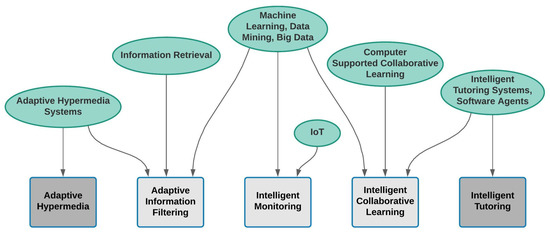The Buzz on Bioinformatics Tutor
The Buzz on Bioinformatics Tutor
Blog Article
Examine This Report on Bioinformatics Tutor
Table of ContentsThe smart Trick of Bioinformatics Tutor That Nobody is Talking AboutNot known Incorrect Statements About Bioinformatics Tutor The Greatest Guide To Bioinformatics TutorThe Ultimate Guide To Bioinformatics TutorAbout Bioinformatics Tutor
Of the overall individuals involved in the training, 80% were students from public higher education establishments, while the continuing to be 20% originated from exclusive establishments. To receive a certificate of participation, students were required to attend at the very least 90% of the overall training hours. As a result of this need, an impressive 95% of the individuals effectively obtained their certifications, having not just fulfilled the minimum participation criteria yet likewise finished all designated activities throughout the training.
Throughout the height of the COVID-19 pandemic, specifically in between June and August 2020, the task team was entrusted with organizing specialized training in bioinformatics. This training was particularly aimed at pupils from the research study team Nucleus for Research in Applied Computer at the Federal College of Pará (UFRA) The adaptation to remote understanding systems because of the pandemic created a chance to discover brand-new training methods and digital devices that enhanced both reach and performance.
This course was made to offer an easily accessible yet detailed overview of Artificial Knowledge techniques, specifically as applied in bioinformatics (Bioinformatics Tutor). This digital style enabled involvement from students throughout Brazil, numerous of whom might not have had the chance to attend in-person sessions.
Bioinformatics Tutor Can Be Fun For Anyone
About 50% of the complete training hours were committed to practical tasks where trainees developed smart designs and applications in a variety of scientific domain names, consisting of genes, molecular biology, and ecological information analysis. These systems made it possible for pupils to involve in real-time information control, design training, and algorithm experimentation.
The course attracted 80 participants in total amount. Sixty of them were affiliated with various higher education establishments in the state of Pará, while the continuing to be twenty came from institutions located in 5 various other Brazilian states. This broad geographical representation highlighted the national passion in bioinformatics and the expanding demand for specialized skills in this location. By presenting Expert system in a pertinent and practical context, the campaign offered to bridge the void between theory and real-world application, providing students with a strong structure for future research study or employment in the area.
The training initiative developed component of a more comprehensive academic outreach initiative referred to as the Bioinformatics when driving project. This project has, over the years, presented dozens of trainees to the globe of bioinformatics and computational biology. The events held under this umbrella effort have taken area across several regions and years, as summed up in Table 1 (List of events, areas, years, and total numbers of students and teachers)
Several of these groups, initially brought together by their involvement in training occasions, have actually given that gone on to generate independent clinical study in collaboration with regional academic institutions. The training not only fostered scientific thinking within the context of bioinformatics but also triggered joint partnerships that extended beyond the training environment.
9 Simple Techniques For Bioinformatics Tutor
The job itself was conceptualized and arranged by MB and RR, that supervised the preparation and execution of each step. Lectures were supplied by a multidisciplinary group containing megabytes, FA, EF, KP, JS, DM, SN, LP, LG, RR, ac, and ih. The very same team, leaving out IH and RR, additionally functioned as tutors for the sensible training components. Funding for the job was provided through the give 88887.200562/ 2018-00 from CAPES. The writers prolong their thankfulness to everyone that contributed to the understanding of this job, whether straight or indirectly, because its inception.
The Federal University of Pará's Workplace of Research (PROPESP/UFPA) likewise gave financial backing, particularly for the manufacturing of the final manuscript. The authors state no business or economic conflicts of interest that might have influenced the research. All interpretations and point of views expressed in this short article are exclusively those of the writers and do not necessarily show those of their particular organizations, the author, editors, or customers entailed in the publication process.

Bioinformatics Tutor Can Be Fun For Anyone
From an instructional perspective, the teaching strategy made use of in the training was deliberately interactive. Classes were carried out in a way that urged trainee participation and discussion, exceeding rote memorization to explore how concepts are created, applied in life, and evaluated in academic setups. The training approach focused on nurturing both strong and battling trainees, offering individualized support, and building self-confidence with sustained mentorship and perseverance.

Each group, including about 36 participants, was supported by three advisors-- a lot of whom were postdoctoral researchers with specialized competence. These coaches not just helped create the team projects however additionally promoted their implementation, guaranteeing that each research inquiry was both suitably difficult and relevant. The objective was to offer a biologically reasonable context that participants can check out through flexible purposes and accessibility to curated datasets.
For added insights right into the approach and results of this project-based discovering technique, visitors are guided to S1 Text, that includes in-depth descriptions of the instructional framework, evaluation methods, and project motifs utilized in the training sessions.
The 5-Minute Rule for Bioinformatics Tutor
Of the overall individuals entailed in the training, 80% were students from public greater education institutions, while the staying 20% came from exclusive institutions. To qualify for a certificate of engagement, students were required to go to at the very least 90% of the overall training hours. Especially, beyond the trainees who signed up in the training sessions, 7 experienced instructors got involved in providing the courses, while 3 devoted study teachers collaborated the general training Discover More process. Roughly 50% of the overall training hours were committed to functional tasks where students built intelligent designs and applications in a variety of scientific domain names, consisting of genes, molecular biology, and environmental data analysis. The training not only fostered clinical thinking within the context of bioinformatics but additionally triggered joint partnerships that expanded past the training setting.
Report this page